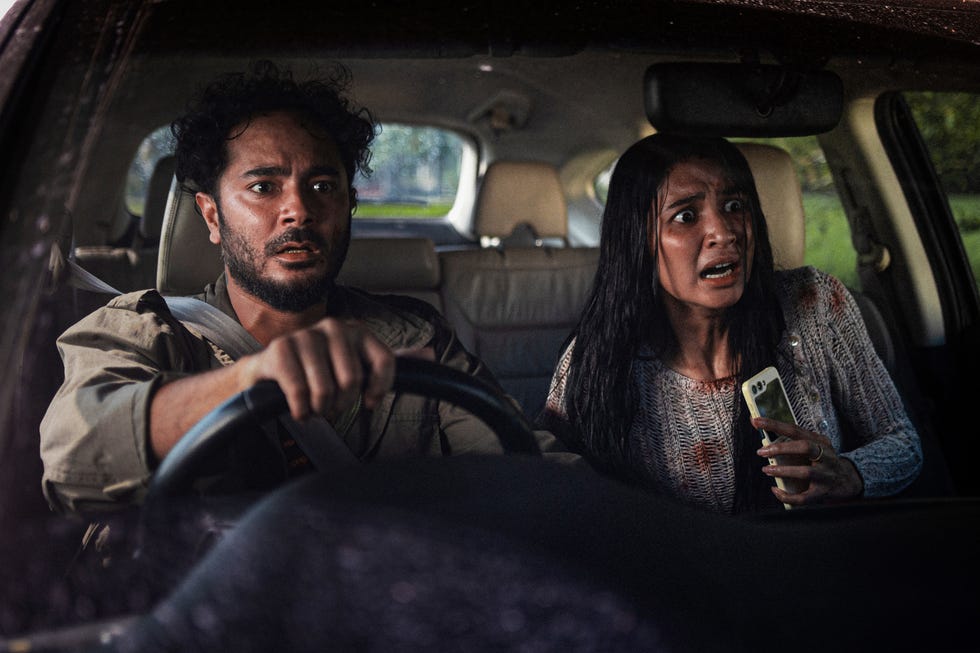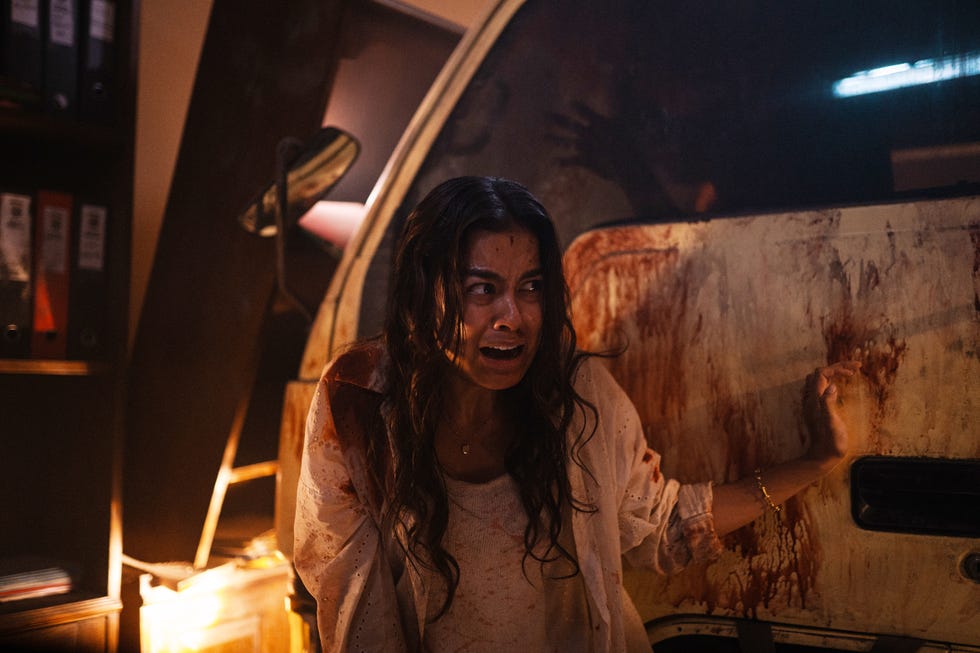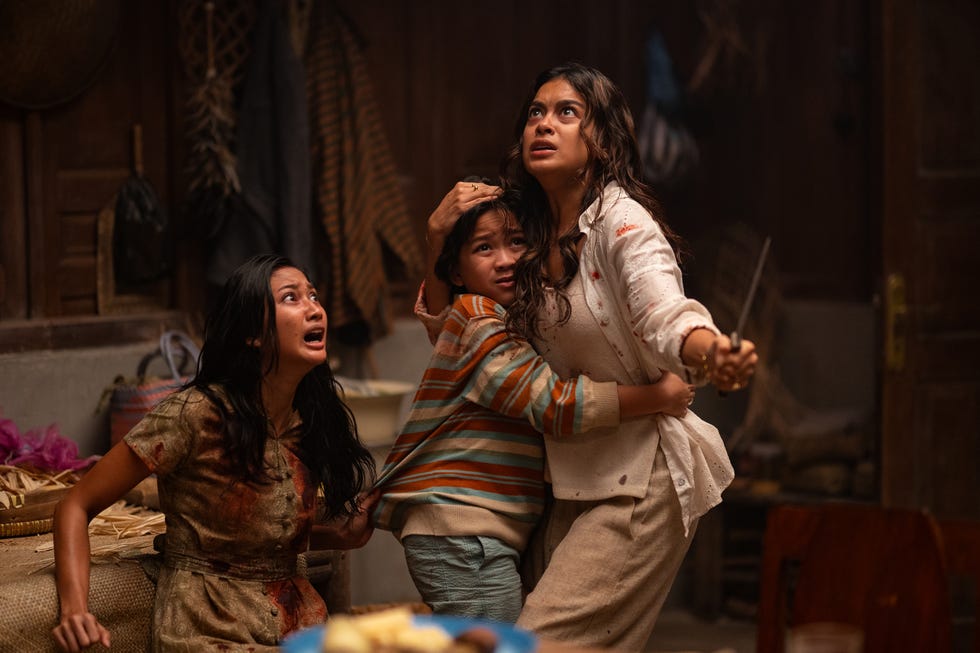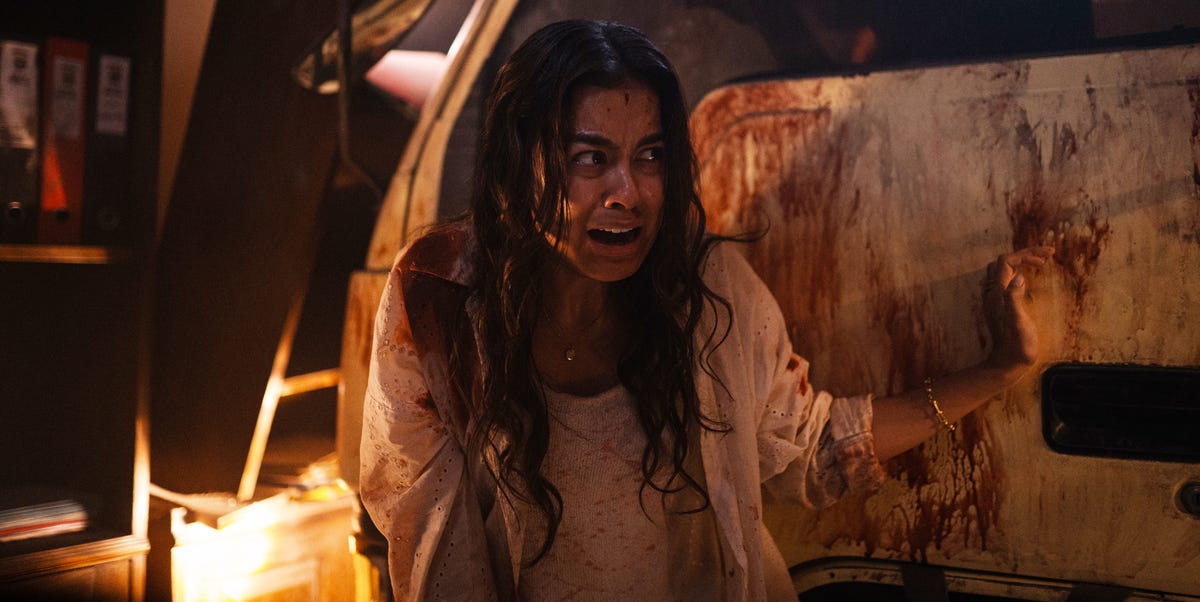After The Substance, another rejuvenating-concoction-based body horror has entered the chat in Netflix‘s The Elixir, an Indonesian zombie affair that’s based on a real drink. The movie (Indonesian title: Abadi Nan Jaya) from director and co-writer Kimo Stamboel has been climbing the streamer’s most watched charts globally with its bonkers version of a juice zombie apocalypse.
Set in Wanurejo in central Java, The Elixir sees a dysfunctional family come together and fend off hordes of hangry zombies.
The outbreak has been triggered by a new recipe of Indonesia’s traditional jamu, a drink made from natural ingredients including roots, bark, flowers, seeds, leaves and fruits and that is believed to have healing properties.
What to Read Next
When jamu company owner Sadimin (Donny Damara) enjoys a taste of a new batch, he has no idea things are about to get really sour.

Netflix
Elated by the drink’s restorative effects, Sadimin can’t wait to show his latest business idea to new wife Karina (Eva Celia), his adult children Kenes (Mikha Tambayong) and Bambang (Marthino Lio), and Kenes’s estranged husband Rudi (Dimas Anggara).
“This herbal’s new. There’s gonna be change,” he says as he kisses the bottles of green-coloured juice. “We now have an eternal youth potion. See, no more grey hair. No more glasses,” he adds, gesturing at his face. “This concoction will change the world.”
It’s only a matter of time before the whole of Indonesia gets turned into a bunch of famished, flesh-ripping creatures.

Netflix
‘
What exactly is jamu?
A traditional Indonesian drink, jamu is a herbal medicine that is said to have countless health benefits. But that’s underplaying its role in the culture.
In old Javanese, jamu means a “prayer for health”, though this juice – of which more than 15,000 existing recipes have been recorded by the Indonesian Ministry of Health – isn’t simply a drink (via BBC Travel).
Much like a cuppa to the British or an espresso to Italians, jamu is an integral part of Indonesian culture. So much, in fact, that in December 2023 Jamu wellness culture was officially recognised as UNESCO Intangible Cultural Heritage of the country.

Netflix
Younger generations of Indonesians have been revisiting the drink, putting their own spin on the potion originated in Java’s royal courts 1,300 years ago.
As jamu has been appearing on the menus of the hippest cocktail bars in Bali and fresh entrepreneurs are carrying on their family legacy, the ‘jamu-ssaince’ also means that the drink is now at the core of a (fictional) zombie apocalypse.
How does Netflix’s The Elixir end?
After seeing her father transform into a zombie before her very eyes, Kenes gets separated from her son Raihan (Varen Alianda Calief) in a desperate attempt to flee.
She and Bambang take shelter at the local police station, where she manages to talk to Raihan on the phone. Kenes is relieved to know he is with Karina and opts to pull a rescue mission to reunite with them.
On their way back, Kenes’s van crashes into the police building, badly injuring Bambang.

Netflix
Trapped under the fuel-leaking vehicle, he self-sacrifices by using a firework to attract the zombies and letting himself explode so that the rest of the gang can safely escape.
The Elixir has one more sad twist in store for Kenes after losing her brother.
Outside, she realises she has been bitten. She then entrusts Raihan to Karina in a heartbreaking goodbye and shoots herself before she could turn into a zombie.
At the end of the film, Karina and Kenes’s son drive away on a motorcycle, leaving a devastated village behind — but the outbreak is far from being contained.
In a post-credit scene, the same Mrs Grace who received the jamu samples earlier on is in Jakarta. Getting ready for an event, she tells her husband she has just downed her own bottle of miraculous jamu, meaning the infection has now reached the capital.
The Elixir is streaming on Netflix.
The new edition of Living Legends is here! Buy Ariana & Witches in newsagents or online, priced at just £8.99.
Reporter, Digital Spy
Stefania is a freelance writer specialising in TV and movies. After graduating from City University, London, she covered LGBTQ+ news and pursued a career in entertainment journalism, with her work appearing in outlets including Little White Lies, The Skinny, Radio Times and Digital Spy.
Her beats are horror films and period dramas, especially if fronted by queer women. She can argue why Scream is the best slasher in four languages (and a half).

